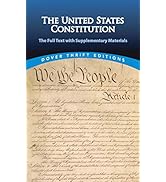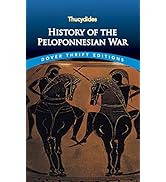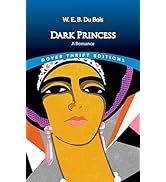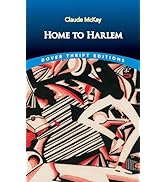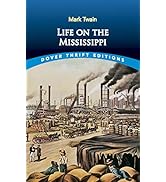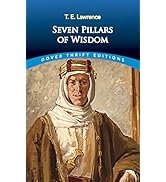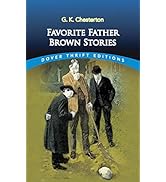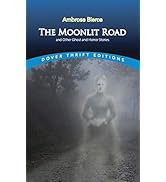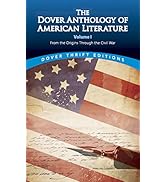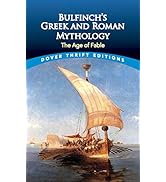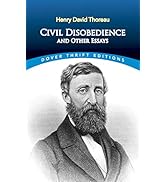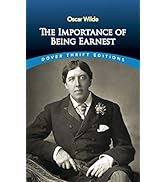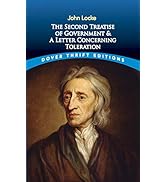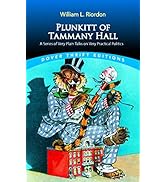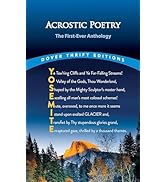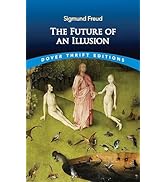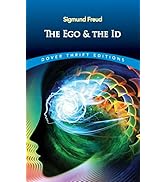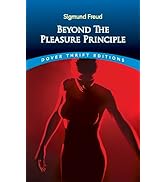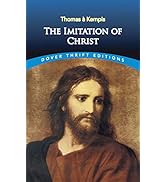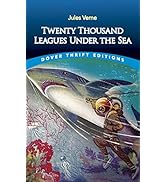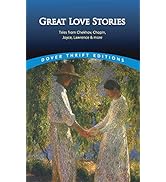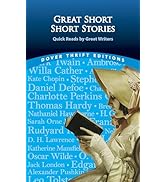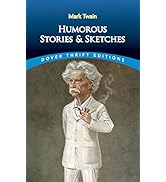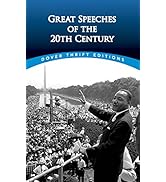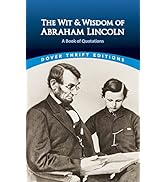
Enjoy fast, free delivery, exclusive deals, and award-winning movies & TV shows with Prime
Try Prime
and start saving today with fast, free delivery
Amazon Prime includes:
Fast, FREE Delivery is available to Prime members. To join, select "Try Amazon Prime and start saving today with Fast, FREE Delivery" below the Add to Cart button.
Amazon Prime members enjoy:- Cardmembers earn 5% Back at Amazon.com with a Prime Credit Card.
- Unlimited Free Two-Day Delivery
- Streaming of thousands of movies and TV shows with limited ads on Prime Video.
- A Kindle book to borrow for free each month - with no due dates
- Listen to over 2 million songs and hundreds of playlists
- Unlimited photo storage with anywhere access
Important: Your credit card will NOT be charged when you start your free trial or if you cancel during the trial period. If you're happy with Amazon Prime, do nothing. At the end of the free trial, your membership will automatically upgrade to a monthly membership.
1.27 mi | ASHBURN 20147

Download the free Kindle app and start reading Kindle books instantly on your smartphone, tablet, or computer - no Kindle device required.
Read instantly on your browser with Kindle for Web.
Using your mobile phone camera - scan the code below and download the Kindle app.



 Audible sample Sample
Audible sample Sample The Jungle (Dover Thrift Editions: Classic Novels) Paperback – Unabridged, November 9, 2001
Purchase options and add-ons
An ardent activist, champion of political reform, novelist, and progressive journalist, Upton Sinclair is perhaps best known today for The Jungle — his devastating exposé of the meat-packing industry. A protest novel he privately published in 1906, the book was a shocking revelation of intolerable labor practices and unsanitary working conditions in the Chicago stockyards. It quickly became a bestseller, arousing public sentiment and resulting in such federal legislation as the Pure Food and Drug Act.|The brutally grim story of a Slavic family who emigrates to America, The Jungle tells of their rapid and inexorable descent into numbing poverty, moral degradation, and social and economic despair. Vulnerable and isolated, the family of Jurgis Rudkus struggles — unsuccessfully — to survive in an urban jungle.
A powerful view of turn-of-the-century poverty, graft, and corruption, this fiercely realistic American classic is still required reading in many history and literature classes. It will continue to haunt readers long after they've finished the last page.
- Print length304 pages
- LanguageEnglish
- PublisherDover Publications
- Publication dateNovember 9, 2001
- Reading age14 years and up
- Dimensions5.25 x 1 x 8 inches
- ISBN-100486419231
- ISBN-13978-0486419237
- Lexile measure1170L
Books with Buzz
Discover the latest buzz-worthy books, from mysteries and romance to humor and nonfiction. Explore more
Frequently bought together

Similar items that may ship from close to you
 The Jungle: The 1906 Uncensored VersionPaperbackFREE Shipping on orders over $35 shipped by AmazonGet it as soon as Saturday, Jul 27
The Jungle: The 1906 Uncensored VersionPaperbackFREE Shipping on orders over $35 shipped by AmazonGet it as soon as Saturday, Jul 27 The JunglePaperbackFREE Shipping on orders over $35 shipped by AmazonGet it as soon as Saturday, Jul 27
The JunglePaperbackFREE Shipping on orders over $35 shipped by AmazonGet it as soon as Saturday, Jul 27 The JunglePaperbackFREE Shipping on orders over $35 shipped by AmazonGet it as soon as Saturday, Jul 27
The JunglePaperbackFREE Shipping on orders over $35 shipped by AmazonGet it as soon as Saturday, Jul 27 The JunglePaperbackFREE Shipping on orders over $35 shipped by AmazonGet it as soon as Saturday, Jul 27
The JunglePaperbackFREE Shipping on orders over $35 shipped by AmazonGet it as soon as Saturday, Jul 27 The Jungle by Upton SinclairUpton SinclairPaperbackFREE Shipping on orders over $35 shipped by AmazonGet it as soon as Saturday, Jul 27
The Jungle by Upton SinclairUpton SinclairPaperbackFREE Shipping on orders over $35 shipped by AmazonGet it as soon as Saturday, Jul 27 Oil! (Penguin Classics)PaperbackFREE Shipping on orders over $35 shipped by AmazonGet it as soon as Saturday, Jul 27
Oil! (Penguin Classics)PaperbackFREE Shipping on orders over $35 shipped by AmazonGet it as soon as Saturday, Jul 27
From the brand

-

Debuting in 1990, the Thrift Editions library of classic literature is a top choice for teachers, students, librarians, and recreational readers around the world. Dover’s longstanding mission of exceptional value has consistently offered excellence in classic fiction, nonfiction, plays, and poetry.
Dover Thrift Editions are low priced, compact (5"x8"), complete and unabridged.
-
Are there any collections of stories or poetry in the Dover Thrift Editions?
In addition to single title books, Dover offers books of anthologies in fiction, non-fiction and poetry. Check out our Thrift Editions of short stories, literary collections, poetry, gothic and horror, SciFi/Fantasy, crime/mystery/thrillers and more. Happy Reading!
What formats are the Thrift Editions available in?
All are available in an easy to carry paperback version and most titles are available for the Kindle e-reader.
-
-
-
-
-
-
-
-
-
-

-
-
-
-
-
-
-
From the Publisher


“They use everything about the hog except the squeal.”
“The great corporation which employed you lied to you, and lied to the whole country—from top to bottom it was nothing but one gigantic lie.”
“As if political liberty made wage slavery any the more tolerable!”
1906 bestseller shockingly reveals intolerable labor practices and unsanitary working conditions in the Chicago stockyards.
A fiercely realistic American classic that will haunt readers long after they've finished the last page.
The brutally grim story of a Slavic family that emigrates to America full of optimism but soon descends into numbing poverty, moral degradation, and despair.
Upton Sinclair was a prolific author, committed socialist, and political activist who gained enormous popularity when his 1906 novel The Jungle exposed conditions in the U.S. meat-packing industry. In 1943, he earned a Pulitzer Prize for his series tale, Dragon's Teeth.

Editorial Reviews
From the Back Cover
An ardent activist, champion of political reform, novelist, and progressive journalist, Upton Sinclair is perhaps best known today forThe Jungle—his devastating exposé of the meat-packing industry. A protest novel he privately published in 1906, the book was a shocking revelation of intolerable labor practices and unsanitary working conditions in the Chicago stockyards. It quickly became a bestseller, arousing public sentiment and resulting in such federal legislation as the Pure Food and Drug Act.|The brutally grim story of a Slavic family who emigrates to America,The Jungle tells of their rapid and inexorable descent into numbing poverty, moral degradation, and social and economic despair. Vulnerable and isolated, the family of Jurgis Rudkus struggles—unsuccessfully—to survive in an urban jungle.
A powerful view of turn-of-the-century poverty, graft, and corruption, this fiercely realistic American classic is still required reading in many history and literature classes. It will continue to haunt readers long after they've finished the last page.
About the Author
Excerpt. © Reprinted by permission. All rights reserved.
The Jungle
By Upton SinclairDover Publications
Copyright © 2001 Upton SinclairAll right reserved.
ISBN: 9780486419237
Chapter One
Chapter I
It was four o’clock when the ceremony was over and the carriages began to arrive. There had been a crowd following all the way, owing to the exuberance of Marija Berczynskas. The occasion rested heavily upon Marija’s broad shoulders—it was her task to see that all things went in due form, and after the best home traditions; and, flying wildly hither and thither, bowling every one out of the way, and scolding and exhorting all day with her tremendous voice, Marija was too eager to see that others conformed to the proprieties to consider them herself. She had left the church last of all, and, desiring to arrive first at the hall, had issued orders to the coachman to drive faster. When that personage had developed a will of his own in the matter, Marija had flung up the window of the carriage, and, leaning out, proceeded to tell him her opinion of him, first in Lithuanian, which he did not understand, and then in Polish, which he did. Having the advantage of her in altitude, the driver had stood his ground and even ventured to attempt to speak; and the result had been a furious altercation, which, continuing all the way down Ashland Avenue, had added a new swarm of urchins to the cortège at each side street for half a mile.
This was unfortunate, for already there was a throng before the door. The music had started up, and half a block away you could hear the dull “broom, broom” of a ’cello, with the squeaking of two fiddles which vied with each other in intricate and altitudinous gymnastics. Seeing the throng, Marija abandoned precipitately the debate concerning the ancestors of her coachman, and, springing from the moving carriage, plunged in and proceeded to clear a way to the hall. Once within, she turned and began to push the other way, roaring, meantime, “Eik! Eik! Uzdaryk-duris!” in tones which made the orchestral uproar sound like fairy music.
“Z. Graiczunas, Pasilinksminimams darzas. Vynas. Sznapsas. Wines and Liquors. Union Headquarters”—that was the way the signs ran. The reader, who perhaps has never held much converse in the language of far-off Lithuania, will be glad of the explanation that the place was the rear-room of a saloon in that part of Chicago known as “back of the yards.” This information is definite and suited to the matter of fact; but how pitifully inadequate it would have seemed to one who understood that it was also the supreme hour of ecstasy in the life of one of God’s gentlest creatures, the scene of the wedding-feast and the joy-transfiguration of little Ona Lukoszaite!
She stood in the doorway, shepherded by Cousin Marija, breath- less from pushing through the crowd, and in her happiness painful to look upon. There was a light of wonder in her eyes and her lids trembled, and her otherwise wan little face was flushed. She wore a muslin dress, conspicuously white, and a stiff little veil coming to her shoulders. There were five pink paper-roses twisted in the veil, and eleven bright green rose-leaves. There were new white cotton gloves upon her hands, and as she stood staring about her she twisted them together feverishly. It was almost too much for her—you could see the pain of too great emotion in her face, and all the tremor of her form. She was so young—not quite sixteen—and small for her age, a mere child; and she had just been married—and married to Jurgis,1 of all men, to Jurgis Rudkus, he with the white flower in the buttonhole of his new black suit, he with the mighty shoulders and the giant hands.
1. Pronounced Yoorghis.
Ona was blue-eyed and fair, while Jurgis had great black eyes with beetling brows, and thick black hair that curled in waves about his ears—in short, they were one of those incongruous and impos- sible married couples with which Mother Nature so often wills to confound all prophets, before and after. Jurgis could take up a two-hundred-and-fifty-pound quarter of beef and carry it into a car without a stagger, or even a thought; and now he stood in a far corner, frightened as a hunted animal, and obliged to moisten his lips with his tongue each time before he could answer the congratulations of his friends.
Gradually there was effected a separation between the spectators and the guests—a separation at least sufficiently complete for working purposes. There was no time during the festivities which ensued when there were not groups of onlookers in the doorways and the corners; and if any one of these onlookers came sufficiently close, or looked sufficiently hungry, a chair was offered him, and he was invited to the feast. It was one of the laws of the veselija that no one goes hungry; and, while a rule made in the forests of Lithuania is hard to apply in the stockyards district of Chicago, with its quarter of a million inhabi- tants, still they did their best, and the children who ran in from the street, and even the dogs, went out again happier. A charming informality was one of the characteristics of this celebration. The men wore their hats, or, if they wished, they took them off, and their coats with them; they ate when and where they pleased, and moved as often as they pleased. There were to be speeches and singing, but no one had to listen who did not care to; if he wished, meantime, to speak or sing himself, he was perfectly free. The resulting medley of sound distracted no one, save possibly alone the babies, of which there were present a number equal to the total possessed by all the guests invited. There was no other place for the babies to be, and so part of the preparations for the evening consisted of a collection of cribs and carriages in one corner. In these the babies slept, three or four together, or wakened together, as the case might be. Those who were still older, and could reach the tables, marched about munching contentedly at meat-bones and bologna sausages.
The room is about thirty feet square, with whitewashed walls, bare save for a calendar, a picture of a race-horse, and a family tree in a gilded frame. To the right there is a door from the saloon, with a few loafers in the doorway, and in the corner beyond it a bar, with a presiding genius clad in soiled white, with waxed black mustaches and a carefully oiled curl plastered against one side of his forehead. In the opposite corner are two tables, filling a third of the room and laden with dishes and cold viands, which a few of the hungrier guests are already munching. At the head, where sits the bride, is a snow-white cake, with an Eiffel tower of constructed decoration, with sugar roses and two angels upon it, and a generous sprinkling of pink and green and yellow candies. Beyond opens a door into the kitchen, where there is a glimpse to be had of a range with much steam ascending from it, and many women, old and young, rushing hither and thither. In the corner to the left are the three musicians, upon a little platform, toiling heroically to make some impression upon the hubbub; also the babies, similarly occupied, and an open window whence the populace imbibes the sights and sounds and odors.
Suddenly some of the steam begins to advance, and, peering through it, you discern Aunt Elizabeth, Ona’s stepmother—Teta Elzbieta, as they call her—bearing aloft a great platter of stewed duck. Behind her is Kotrina, making her way cautiously, staggering beneath a similar burden; and half a minute later there appears old Grandmother Majauszkiene, with a big yellow bowl of smoking potatoes, nearly as big as herself. So, bit by bit, the feast takes form—there is a ham and a dish of sauerkraut, boiled rice, macaroni, bologna sausages, great piles of penny buns, bowls of milk, and foaming pitchers of beer. There is also, not six feet from your back, the bar, where you may order all you please and do not have to pay for it. “Eiksz! Graicziau!” screams Marija Berczynskas, and falls to work herself—for there is more upon the stove inside that will be spoiled if it be not eaten.
So, with laughter and shouts and endless badinage and merriment, the guests take their places. The young men, who for the most part have been huddled near the door, summon their resolution and advance; and the shrinking Jurgis is poked and scolded by the old folks until he consents to seat himself at the right hand of the bride. The two bridesmaids, whose insignia of office are paper wreaths, come next, and after them the rest of the guests, old and young, boys and girls. The spirit of the occasion takes hold of the stately bartender, who condescends to a plate of stewed duck; even the fat policeman—whose duty it will be, later in the evening, to break up the fights—draws up a chair to the foot of the table. And the children shout and the babies yell, and every one laughs and sings and chatters—while above all the deafening clamor Cousin Marija shouts orders to the musicians.
The musicians—how shall one begin to describe them? All this time they have been there, playing in a mad frenzy—all of this scene must be read, or said, or sung, to music. It is the music which makes it what it is; it is the music which changes the place from the rear-room of a saloon in back of the yards to a fairy place, a wonderland, a little corner of the high mansions of the sky.
The little person who leads this trio is an inspired man. His fiddle is out of tune, and there is no rosin on his bow, but still he is an inspired man—the hands of the muses have been laid upon him. He plays like one possessed by a demon, by a whole horde of demons. You can feel them in the air round about him, capering frenetically; with their invisible feet they set the pace, and the hair of the leader of the orchestra rises on end, and his eyeballs start from their sockets, as he toils to keep up with them.
Tamoszius Kuszleika is his name, and he has taught himself to play the violin by practising all night, after working all day on the “killing beds.” He is in his shirt sleeves, with a vest figured with faded gold horseshoes, and a pink-striped shirt, suggestive of peppermint candy. A pair of military trousers, light blue with a yellow stripe, serve to give that suggestion of authority proper to the leader of a band. He is only about five feet high, but even so these trousers are about eight inches short of the ground. You wonder where he can have gotten them—or rather you would wonder, if the excitement of being in his presence left you time to think of such things.
For he is an inspired man. Every inch of him is inspired—you might almost say inspired separately. He stamps with his feet, he tosses his head, he sways and swings to and fro; he has a wizened-up little face, irresistibly comical; and, when he executes a turn or a flourish, his brows knit and his lips work and his eyelids wink—the very ends of his necktie bristle out. And every now and then he turns upon his companions, nodding, signalling, beckoning frantically—with every inch of him appealing, imploring, in behalf of the muses and their call.
For they are hardly worthy of Tamoszius, the other two members of the orchestra. The second violin is a Slovak, a tall, gaunt man with black-rimmed spectacles and the mute and patient look of an overdriven mule; he responds to the whip but feebly, and then always falls back into his old rut. The third man is very fat, with a round, red, sentimental nose, and he plays with his eyes turned up to the sky and a look of infinite yearning. He is playing a bass part upon his ’cello, and so the excitement is nothing to him; no matter what happens in the treble, it is his task to saw out one long-drawn and lugubrious note after another, from four o’clock in the afternoon until nearly the same hour next morning, for his third of the total income of one dollar per hour.
Before the feast has been five minutes under way, Tamoszius Kuszleika has risen in his excitement; a minute or two more and you see that he is beginning to edge over toward the tables. His nostrils are dilated and his breath comes fast—his demons are driving him. He nods and shakes his head at his companions, jerking at them with his violin, until at last the long form of the second violinist also rises up. In the end all three of them begin advancing, step by step, upon the banqueters, Valentinavyczia, the ’cellist, bumping along with his instrument between notes. Finally all three are gathered at the foot of the tables, and there Tamoszius mounts upon a stool.
Continues...
Excerpted from The Jungleby Upton Sinclair Copyright © 2001 by Upton Sinclair. Excerpted by permission.
All rights reserved. No part of this excerpt may be reproduced or reprinted without permission in writing from the publisher.
Excerpts are provided by Dial-A-Book Inc. solely for the personal use of visitors to this web site.
Product details
- Publisher : Dover Publications; Unabridged edition (November 9, 2001)
- Language : English
- Paperback : 304 pages
- ISBN-10 : 0486419231
- ISBN-13 : 978-0486419237
- Reading age : 14 years and up
- Lexile measure : 1170L
- Item Weight : 7.2 ounces
- Dimensions : 5.25 x 1 x 8 inches
- Best Sellers Rank: #91,432 in Books (See Top 100 in Books)
- #371 in Political Fiction (Books)
- #420 in Classic American Literature
- #3,435 in Classic Literature & Fiction
- Customer Reviews:
About the author

Upton Beall Sinclair, Jr. (September 20, 1878 – November 25, 1968) was an American author who wrote nearly 100 books and other works across a number of genres. Sinclair's work was well-known and popular in the first half of the twentieth century, and he won the Pulitzer Prize for Fiction in 1943.
In 1906, Sinclair acquired particular fame for his classic muckraking novel, The Jungle, which exposed conditions in the U.S. meat packing industry, causing a public uproar that contributed in part to the passage a few months later of the 1906 Pure Food and Drug Act and the Meat Inspection Act. In 1919, he published The Brass Check, a muckraking exposé of American journalism that publicized the issue of yellow journalism and the limitations of the “free press” in the United States. Four years after publication of The Brass Check, the first code of ethics for journalists was created. Time magazine called him "a man with every gift except humor and silence." He is remembered for writing the famous line: "It is difficult to get a man to understand something, when his salary depends upon him not understanding it."
Bio from Wikipedia, the free encyclopedia.
Customer reviews
Customer Reviews, including Product Star Ratings help customers to learn more about the product and decide whether it is the right product for them.
To calculate the overall star rating and percentage breakdown by star, we don’t use a simple average. Instead, our system considers things like how recent a review is and if the reviewer bought the item on Amazon. It also analyzed reviews to verify trustworthiness.
Learn more how customers reviews work on AmazonCustomers say
Customers find the book very graphic and interesting, showing the horror of life in that era. They also say the plot is incredibly slow and monotonous. Opinions are mixed on the socialism, with some finding it wonderful and relevant, while others say it surreptitiously promotes socialisim. Readers disagree on the emotional tone, with others finding it thrilling and exciting, while other find it depressing and heart-wrenching. They disagree on character traits, with one finding them riveting and easy to understand, while another finds them random and strange. Reader opinions are mixed also on readability, with customers finding it well-written and difficult at times to read, with gross details.
AI-generated from the text of customer reviews
Customers find the content interesting, important, and insightful into the conditions of early 19th century America. They also describe it as a powerful novel about immigrants and their treatment at the hands of the authorities. Readers also say the book is the result of extensive undercover research and a modern-day warning.
"...macroscopic, but I felt that the first part of the book was the most captivating." Read more
"...It turned out to be a powerful novel about immigrants and their treatment at the hands of businesses, especially in the Chicago meatpacking industry...." Read more
"...It makes this a frightening powerful novel, a modern-day warning. I wish it was required reading." Read more
"...I would highly recommend this book because not only is it insightful to the conditions of early 19th century America but many parallels can be..." Read more
Customers find the book gives a graphic insight into the meat-packing industry. They also appreciate the author's descriptions, which make them feel like they're there. Readers also mention the depth of the book is amazing, and it's a great snapshot of that moment.
"...this book, because of it's nature, but let's just say that it was very eye-opening...." Read more
"...Upton Sinclair's story telling is gripping in its suspense and vivid in its detail...." Read more
"...The picture Sinclair presents is very vivid and the emotions of his characters are communicated very well through his prose...." Read more
"...It's a great snapshot of that moment and exposes some terrible failures of American capitalism and democracy...." Read more
Customers have mixed opinions about the readability of the book. Some find it well written, while others say it's difficult to read at times. They also mention that the book is ridiculously small and virtually unviewable even with zoom.
"...This is an excellent book that is very well written. It delivers what it promises: a description of a jungle where only the strong survives...." Read more
"...a monumental book, in terms of its influence, but it's not really a well-written book...." Read more
"Amazing writing...." Read more
"...I found the writing to have become lazy and un-engaging. He seems to quickly wind up the family struggle with quick resolutions...." Read more
Customers are mixed about the emotional tone. Some find the book thrilling, exciting, heart-wrenching, and enlightening. They also say it makes them very thankful and raises questions about economics. However, others say the book is very depressing, disturbing, and boring.
"...This part of the book is extremely emotional...." Read more
"...Certainly, this "hero" was not perfect for engendering sympathy for the masses...." Read more
"...Jurgis a believable "Everyman," innocent and naive, pure-hearted, but human and subject to temptation...." Read more
"The book narrates a rather depressing tale. Immigrants have a hard time to hoe just coming here. They also have swindlers and other challenges...." Read more
Customers are mixed about the socialism in the book. Some find it wonderful, poignant, and relevant politically. They also say it exposes greed and its power. However, other customers feel the book surreptitiously promotes socialisim and is very political.
"...Sinclair does a good job of describing socialism and the novel provides a solid context for its appeal..." Read more
"...The other parts are great, but I think that the last part became too political...." Read more
"...It's a very interesting book. It has a very Socialist viewpoint...." Read more
"...The last third of the novel is purely Socialist propaganda and the entire plot and storyline disintegrate in favor of a conversation regarding the..." Read more
Customers are mixed about the characters in the book. Some find them riveting and easy to understand, while others say the plot line around the main character was random and strange.
"...It's not only a great story with great characters, it's a plea for social justice. And its impact can still be felt today." Read more
"...This is not an honest portrayal - Sinclair observed a factory for a couple of weeks and tried to tell the most dramatic story possible with that..." Read more
"...First, the story is very interesting and intriguing. The characters are easy to relate to and although the first chapter starts of slowly, the book..." Read more
"...The characters didn't seem deeply developed, the plot was mostly a vehicle for exposing a lot of (excellent) research, and the ending fit the theme..." Read more
Customers find the plot ridiculously forced, with little excitement and adventure. They also say the book is hard to finish and the reality is gruesome.
"...The ending was a weak point by today's standards. There was hope that socialism would address all the flaws of social inequity...." Read more
"...frequently, and in such a methodical order, that the story feels ridiculously forced – killing my immersion...." Read more
"...political rally with the main character as a backdrop and the story just disappears...." Read more
"...I found it fascinating, depressing, and revolting...all feelings I'm sure Sinclair had in mind for his readers...." Read more
Customers find the book incredibly slow and monotonous. They also say the storyline is a bit slow at the beginning.
"...I found this book to be a slow read. It did not draw me into the story as a book should...." Read more
"...get back into reading, this was my second book of the year, story line was a bit slow at the beginning but picked up, good book over all." Read more
"Slow to get into, the rants at the end got old, but was engrossed by the story Sinclair tells...." Read more
"...It was a really developed book and is a slow read, but it is quite interesting" Read more
Reviews with images
-
Top reviews
Top reviews from the United States
There was a problem filtering reviews right now. Please try again later.
Jurgis Rudkos is Sinclair's protagonist here, a recent Lithuanian immigrant alighting on the shores of Chicago in search of the American dream of wealth and prestige. Jurgis brings several relatives and his fiancée with him, certain that with a new job in the city he will soon wed and raise a family. Rudkos and company soon learn the reality of their situation upon reaching Packingtown, the slums that surround the beef factories like concentric rings of misery that even Dante could not have foreseen. The Rudkos clan doesn't speak English, so they are at the mercy of nearly everyone around them. Jurgis and several of his relatives manage to land jobs at the factories, but soon discover that these jobs are nightmares of depravity involving insanely long working hours, cruel bosses, low pay barely adequate for basic human needs, and filthy conditions. At first, Jurgis doesn't care how bad it is; he knows if he and the members of his family work hard they may eventually afford to purchase a house. This they do, but soon discover that the costs of insurance, interest, and taxes will keep them in a constant state of turmoil. If even one person in the family loses their job, the whole clan faces eviction and eventual doom. As the years pass, Jurgis and those he loves face one calamity after another. Lost jobs, dishonest government and vendors, disease, crime, and debt all take a devastating toll. There is little happiness residing in the pages of this book.
Sinclair's purpose with this book is to tout the panacea of socialism in a world that many increasingly saw as controlled by rampant big business. The last half of the story is essentially a socialist pamphlet singing the praises of the working class and how the people need to take back their institutions by reining in corporations. The author rebuts standard arguments favoring capitalism while presenting socialism as salvation incarnate. Whether you agree with socialist dogma or not, it is not difficult to understand why people favored such a worldview in an era when government regulation was non-existent or nearly so. Not surprisingly, unions get a fair amount of support from Sinclair to the extent that they are about the only organization willing to oppose the greed of the meatpackers. In short, "The Jungle" takes business to task while championing the little guy.
This new edition culled Sinclair's original text from a socialist organ entitled "Appeal to Reason." The author later tried to publish this version but ran into numerous obstacles from mainstream publishers who worried about lawsuits from the beef trust, the unsettling descriptions of factory life, and the author's unwavering support for immigrants. Sinclair eventually made the changes to the text in order to get the book published, figuring it was important to get some of the message out there then none at all. An introduction in this edition argues that the restored changes show how the author's focus was really on foreign workers, not necessarily the grotesque atmosphere of the slaughterhouses. Sinclair himself stated that he "aimed for the public's heart but hit them in the stomach instead." After reading this version of "The Jungle," it does seem as though the primary intention of the book was to emphasize the plight of Jurgis and the millions of other poor souls trapped in the insanity of a greedy industry. However, it is hard to read this book and not cringe over the lengthy passages outlining the disgusting practices that led to tainted meat and the spread of disease through such products as tinned beef. Arguably the most powerful section of the book discusses in depth the results of a strike in Chicago involving all of the meatpacking houses. Sinclair is at the height of his descriptive powers as he takes the reader on a tour of the factories locked in the throes of scab warfare and even more disgusting factory conditions. This is powerful stuff.
Nearly one hundred years after "The Jungle," Upton Sinclair remains the best remembered muckraker of the era. Having read both versions available, I have to conclude that reading either edition is equally effective. I only read this new treatment because I like to read unabridged or uncontaminated copies of any book. The uncensored edition adds about five chapters to the story, but it doesn't really make it that much longer since the chapters are all relatively short. Upton Sinclair fans will most certainly want to acquire this edition of the book to see what they have been missing all these years.
In the second part Jurgis finally realizes that he is living in a jungle and seeing that he has nothing to fight for anymore decides to be part of the system and to try to gain as much as he can in any way possible. We see the criminal life in Chicago and how business is done.
From there we move to the next level where we see the politics of Chicago and the changes that are happening. We see thousands of families that are living as Jurgis used to live are fed up and how they demand change. Basically we see the rise of socialism.
This is an excellent book that is very well written. It delivers what it promises: a description of a jungle where only the strong survives. As I said, the best part of the book for me was when Jurgis was a family man. The other parts are great, but I think that the last part became too political. I know that this is what the author intended and I did enjoy the transition from the microscopic to the macroscopic, but I felt that the first part of the book was the most captivating.
Central to the story is the plight of the workers and, indeed, that was Upton Sinclair's purpose as he went to Chicago on a stipend from a socialist newspaper to expose the exploitation of the factory workers. That is the central theme of the book and I found myself wincing throughout, not only because of the tubercular beef being sold to the public, but mostly because of the degradation of the human beings who were just cogs in the wheels of production.
The story is about a family of Lithuanian immigrants who came to America for a better life. From the very beginning, they were cheated. They were sold a substandard house and never told about the extra taxes, fees and clauses that would cause them to lose the house if they were late with their payments. They had to to walk several miles to work in the stockyards in the dead of winter with inadequate clothing. Children were forced to work too and one little boy lost some fingers from frostbite. Their wages didn't meet their needs and there were times there was no food at all. They could never afford doctors or medicine and if a member of a family was sick or injured that person lost his or her job.
I'll never forget the characters in the book. Ona and Jurgis are a young married couple who we meet at their wedding in the beginning of the book. They are young and they have hope. Jurgis is big and strong and easily gets a job. At first all seems well. But as the book progresses, we see how everyone in the family has no choice but to work. This includes the elderly father and the children. Later, when Jurgis hurts his foot in an accident, he is out of work for months and the family suffers. But even more horror is in store of the family. Mainly, we follow what happens to Jurgis as he loses his job, and circumstances spiral out of control. I felt real emotion for him and his family, amazed at out anyone could endure the hardships they had to face. Eventually the book winds up as the writer wanted it, with anger at the exploitation of the workers.
I loved this book. I read it all at once, starting it at three o'clock one afternoon and reading through most of the night until I finished it. I identified with each of the characters and was amazed at their forbearance and strength through all their adversity. Of course I had heard about these horrible conditions throughout my lifetime. But I never realized how bad they really were. This book opened my eyes. I don't know if I will ever be the same again.
I give this book my highest recommendation. It's not only a great story with great characters, it's a plea for social justice. And its impact can still be felt today.
Top reviews from other countries
The Jungle draws comparison to other tales of hardship – for example Faulkner’s The Grapes of Wrath – but Sinclair offers a twist. Rather than a study of characters caught up in an epic event such as the Depression-era Dust Bowl, Sinclair uses his characters’ hardship to critique the setting itself. More specifically, the characters are a vehicle to highlight the uneven and immoral impacts of capitalism, and to deliver a lesson in left-leaning (socialist?) economics and politics.
Sinclair advances his theme in four stages. First, in the largest section, he chronicles the dehumanizing work in Chicago’s meat packing district and the revolting methods the plant owners use to pass off inedible meat to unwitting consumers. If it’s not enough to make readers question the balance of power between labor and capital, it will certainly make them rethink what they eat.
The second, shorter stage shows Jurgis via a scrape with the law up against the broader industrial/political/media complex. It’s not so much that the law is stacked against Jurgis; the justice is perfunctory and with the barest standards of due process. Rather, it is the systemic intertwining political and industrial connections of others accused and acquitted, and of those meting out justice that rankles Sinclair. ��Government existed under the form of a democracy. The officials who ruled it, and got all the graft, had to be elected first; and so there were two rival sets of grafters, known as political parties, and the one got the office which bought the most votes.”
The third stage - an interlude, really - follows Jurgis as a hobo after turning his back on Chicago, capitalism, and the social contract. He lives by his wits when a chance encounter permits him inside a meat packing industrialist’s mansion. The unneeded, undeserved and unproductive wealth stands in stark contrast to laborers’ deprivation and drives home Sinclair’s message about unfettered capitalism. Jurgis’ life as a hobo, outside the capital/labor struggle, harkens back to an idyllic (Edenic, not Hobbesian) time before capitalism, and foreshadows the possibility of another path … but not before Jurgis takes a turn working within the power structure, which proves less punishing than as a laborer but equally unfruitful.
The fourth stage reconciles the plot elements of the first three stages and presents a socialist alternative. “In America everyone had laughed at the mere idea of Socialism then — in America all men were free. As if political liberty made wage slavery any the more tolerable!” The Hobbesian bargain had metastasized under the natural power imbalances of capitalism, just as Marx had warned a few decades earlier, and the promise of socialism offered Jurgis a third path. He need not choose between the perpetually antagonistic labor and capital, but rather from a third option, in which one could select a job and receive remuneration based upon his or her contribution (labor hours and skill), all of which would advance broader societal goals. Government (rather than the oppressive capitalists) would establish the value of labor contributions. Sinclair envisioned a workers’ movement which would gently rule, and progress would be guided by ‘an invisible hobo hand’.
Written after both Adam Smith’s and Marx’s theorizing but before the Russian Revolution, history has since shown the weakness of Sinclair’s concluding sermon, and even the labor theory of value that Sinclair touts was being supplanted when the book was written. Still, The Jungle is a seminal and cautionary tale of the power struggle between capital and labor. It applies equally well to the disposability of labor in today’s era of globalization and automation, and perhaps to intellectual capital in the coming era of Artificial Intelligence.
Sinclair’s plot is straightforward – simply a vehicle to critique the capitalist system – and offers none of the rollicking twists in Dickens’ working-class novels. Nor does it feature the robust character development of other authors. What it does offer is one of the first literary indictments of unfettered capitalism, and for this it should be read by all with an interest in politics and economics.







